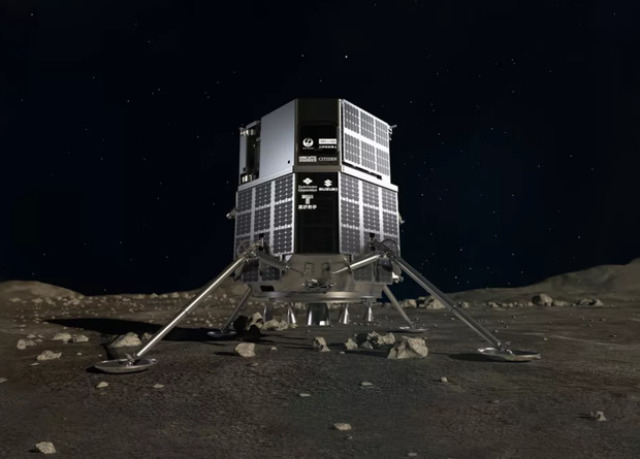Japanese startup ispace will deliver the first lunar rover of the Arab world to the moon, using its Hakuto-R lander. Thus, in 2022, the list of countries that managed to land their spacecraft on the Moon can be replenished with two at once, according to the website Space.com.
Currently, the United Arab Emirates is actively engaged in its space program, which includes not only near-Earth satellites and astronaut training, but also interplanetary vehicles. Last year [...], the Al Amal interplanetary station was launched to Mars, which studies the planet's atmosphere, and by 2117, the UAE intends to build a colony on Mars. In September last year, it was announced that the development of the country's first 10-kilogram lunar rover "Rashid"had begun. The rover's payload will consist of cameras, a thermal imager, a microscope, and a Langmuir probe to study the regolith and environment of the Earth's natural satellite.
On April 14, the Japanese company ispace announced that it has signed a contract with the Mohammed bin Rashid Space Center, under which it will deliver the Rashid rover to the Moon using its lander as part of its Hakuto-R Mission 1 mission . Thus, the launch date of the Arab lunar rover has been moved from 2024 to 2022, and the landing site has also changed — instead of the polar regions of the Moon, the rover will have to work 14 earth days in the equatorial region of the Moon on its visible side. Ispace will also be responsible for the rover's data exchange with the Earth both during the flight to the Moon and when working on its surface.
If all goes well, Japan and the United Arab Emirates will join the list of countries that managed to deliver their spacecraft to the surface of the moon. Currently, Russia, the United States and China are present in it, previously India and Israel could have entered it, but their Bereshit and Chandrayan-2 vehicles crashed.
Earlier, we talked about other projects of private companies in the field of lunar exploration, including the Israeli Bereshit-2 ,the American Genesis and VIPER, and the Russian microsatellite .
Alexander Voityuk

